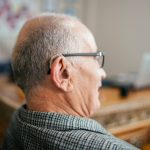Hearing loss and loneliness together may speed up memory decline
Hearing loss is more than just an inconvenience. It can lead to problems with communication, social isolation, and even reduced alertness. Over time, it...
Alzheimer’s risk factors may affect brain function since young adulthood
A new study from Columbia University suggests that signs of Alzheimer’s disease may begin affecting the brain much earlier in life than previously thought—even...
How a popular sweetener could be damaging your brain’s defenses
Found in everything from protein bars to energy drinks, erythritol has long been considered a safe alternative to sugar.
But new research suggests this widely-used...
Good news for ‘weekend warriors’ with diabetes: Exercise lowers heart risk
If you have diabetes and struggle to fit exercise into your busy schedule, there’s encouraging news.
A new study has found that even cramming your...
Bitter melon for diabetes? Fenugreek for cholesterol? The research behind ancient remedies
Herbs like ashwagandha and turmeric are now widely recognized as part of the global wellness lexicon.
But ayurveda, India's traditional system of medicine with a...
High blood sugar strongly harm men’s sexual health
New research suggests that changes in blood sugar and other metabolic health factors may have a bigger impact on men's reproductive and sexual health...
Foods older people with high blood pressure should avoid
High blood pressure, or hypertension, is a common health issue for older adults. It raises the risk of serious problems like heart disease, strokes,...
Popular sugar substitute may increase stroke risk
Erythritol, a sweetener found in many “sugar-free” and low-carb foods, may not be as safe as once thought.
A new study from the University of...
Fasting twice a week can control diabetes effectively
Different eating patterns can help people with obesity and type 2 diabetes manage their blood sugar and lose weight, according to a new study...
Heavy alcohol use causes long-lasting brain damage, study finds
For the first time, researchers have shown in an animal model how heavy alcohol use can cause long-term brain damage that affects decision-making.
In a...










